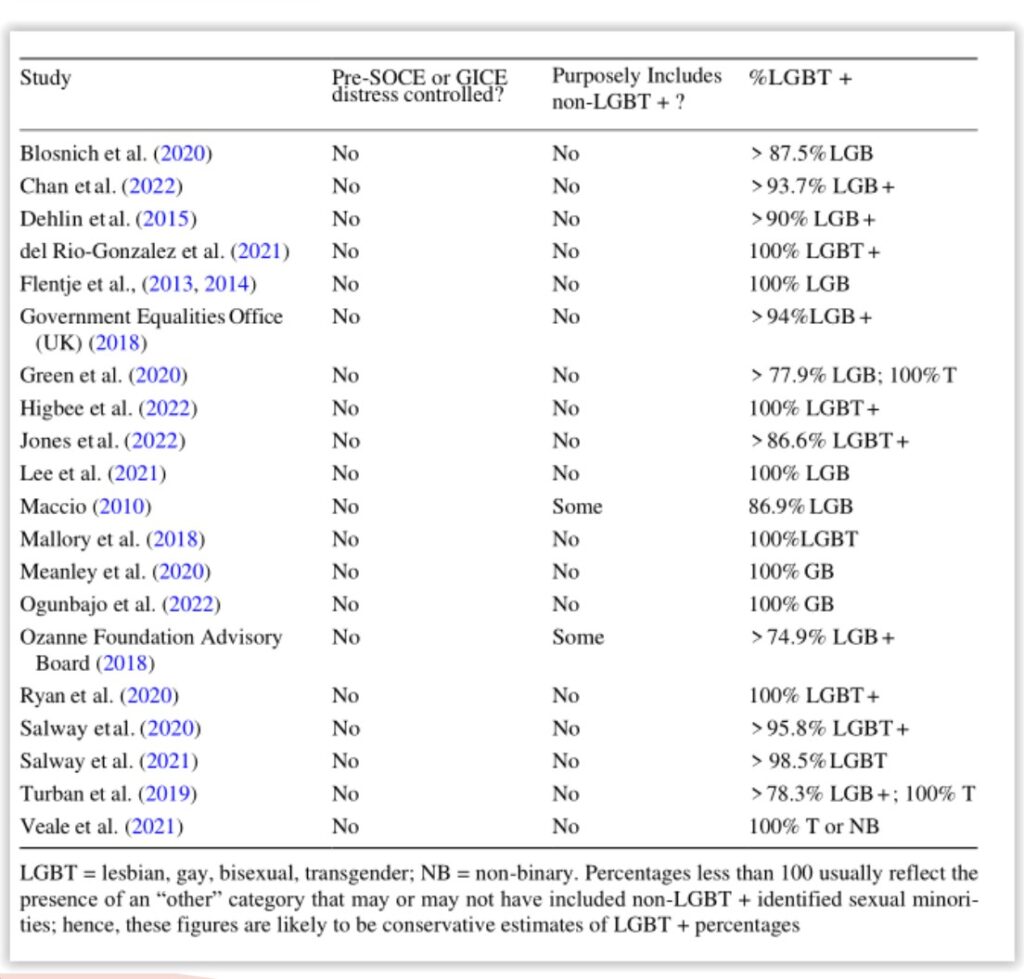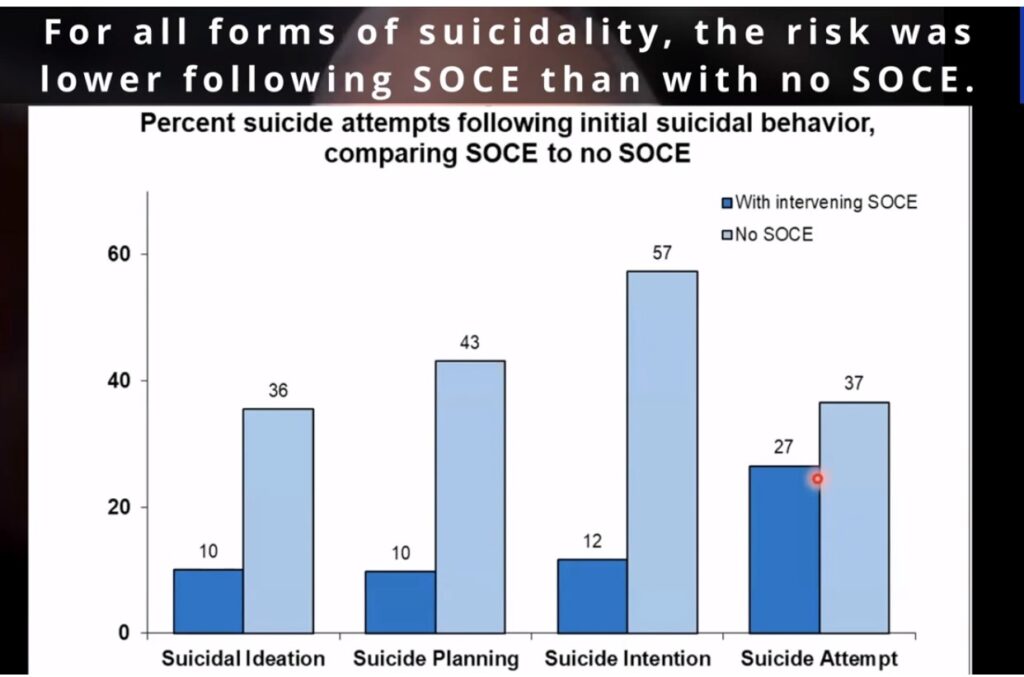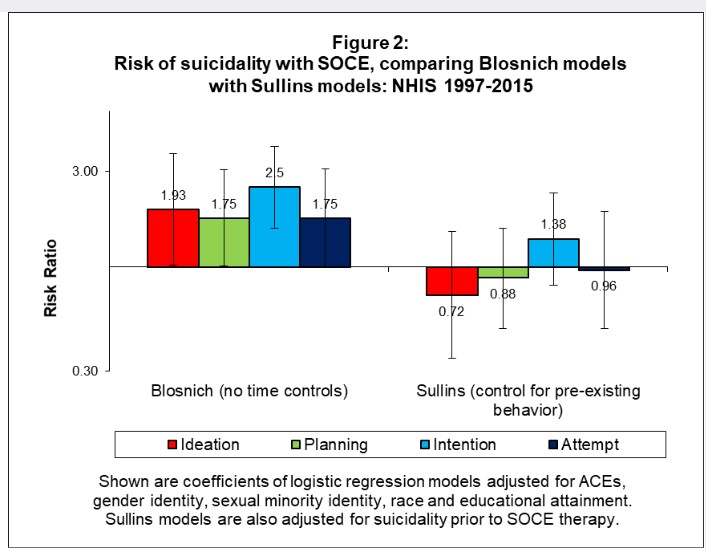Data: 26 States That Banned Therapy For LGBT People Upped Suicide Risks
Last week, the U.S. Supreme Court refused to hear a challenge to 26 state laws at least partly based on studies claiming “conversion therapy” increases LGBT Americans’ suicide risks. Yet every existing study that makes this claim is seriously scientifically unsound, several research reviews recently found.
Not only do all these studies depend on unscientific methods, but the data from one highly cited such study actually shows the opposite of what its authors claim, says a sociologist who reran the study’s data with standard scientific controls the authors omitted.
“The evidence shows that SOCE [sexual orientation change efforts] is fairly effective at preventing suicide attempts,” said Paul Sullins, a research professor at Catholic University and senior researcher for the Ruth Institute, in a press conference released Friday.
These majorly flawed studies have boosted efforts to ban therapists from helping distressed people across the United States and the world. According to Sullins, some 20 states and the District of Columbia ban therapists from helping people struggling to resolve homosexual desires or gender dysphoria. Six states partially ban such therapy. That means in those states, therapists may only nudge children toward, rather than help prevent, transgender mutilation.
Last week, Republican-appointed Justices John Roberts, Amy Coney Barrett, and Neil Gorsuch joined the court’s leftists in refusing to resolve a circuit-court split over whether states can punish therapists who talk to willing clients about unwanted sexual attractions and gender dysphoria. Barrett also voted to let stand a lower-court decision striking laws against children attending transvestite shows.
Every study published since 2009 on therapy for people struggling with sexual orientation distress used the same major scientific flaw Sullins identified in a 2020 paper, Christopher Rosik, a psychologist at Fresno Pacific University, found in 2022 with a research review. All failed to control for suicidal thoughts and actions LGBT people expressed before they went to “conversion therapy.”
The studies claim “conversion therapy” caused the LGBT study participants to have more suicidal thoughts and attempts, but not one separated the suicidal thoughts and attempts that occurred before starting therapy. It’s not only logically impossible but scientifically invalid to say something that came after a first thing caused the first thing. But that’s what every single one of these studies did.

Chart from Rosik’s review
Failing to control for preexisting suicidal distress among LGBT people before they went to therapy led to the false but widely publicized claim that “conversion therapy causes suicide.”
When he reran the numbers with proper controls, Sullins found two-thirds of the LGBT participants’ suicidal thoughts and attempts in the 2020 study happened before they went to therapy for help with their sexual orientation. That means therapy couldn’t have caused the majority of LGBT people’s suicidal thoughts or attempts because most happened before therapy.
In fact, when Sullins controlled for pre-therapy suicidal behavior, he found “conversion therapy” actually reduced suicide attempts and intentions by up to 80 percent. That means he found the opposite of what the study authors claimed — using their own data. If therapy does reduce suicidal thoughts and attempts, these talk therapy bans and the Supreme Court’s refusal to end them enable higher levels of distress and self-harm for LGBT Americans.
The reaction to Sullins’ 2022 published findings, which continues, included respondents insisting on retraction because the findings could endanger queer legal privileges. Amid that debate, Rosik and Sullins note that the studies claiming to find that sexual orientation change efforts increase suicide risks also only include self-identified LGBT people, which excludes people with similar attractions who don’t identify as LGBT.


The 2020 Blosnich, et al., study “is an elaborate falsehood,” Sullins said in the press conference. “I don’t want to say that their study was fraudulent, but it purposely ignored scientific standards of evidence to point to causation with regard to SOCE [sexual orientation change efforts] harm.”
The social sciences are the hardest hit by the replication crisis affecting every domain of allegedly scientific research. Today, replicating a study more often than not does not yield the same results, at least partly because science has become a tool for advancing politics. That’s exactly what these studies appear to be: tools for advancing politics, rather than attempts to find the truth.
In his 2022 review and replication of the Blosnich study, Sullins writes, “A disturbing feature of this research is that, at least for some, including Blosnich et al.’s (2020) study, the choice to ignore time order in attributing causation was not inadvertent but intentional.” He notes that several authors of these flawed studies publicly stated their awareness of the difference between pre-therapy distress and post-therapy distress yet still failed to distinguish between the two in their studies.
Next, Sullins looked at the four most recent studies the American Psychological Association and U.K. Government Equalities Office cited when publicly supporting bans on therapists helping people with unwanted same-sex attractions. All four of the studies made the same error as Blosnich: failing to control for suicidal thoughts and attempts that occurred before starting therapy.
Sullins noted major queer organizations use these scientifically incompetent studies to push for therapy bans. He quoted as an example Shannon Price Minter, an attorney for the National Center for Lesbian Rights, which defended Washington state’s therapy ban the Supreme Court refused to review.
In a press release celebrating the Supreme Court’s refusal to secure therapists and their willing clients’ free speech rights, Minter said, “Every major medical and mental health association in the country has warned that conversion therapy is unnecessary, ineffective, and harmful. That is why nearly half the states in this country have enacted laws to protect youth and their families from these serious harms.”
“Now, that’s a patently false claim,” Sullins responded. “It’s true that this study reported that. But the report, the result is a false, misleading, egregious kind of science.”
The national suicide hotline is 1-800-273-8255. Find more resources here.





Comments are closed.